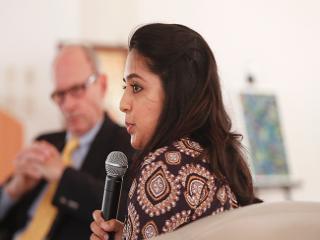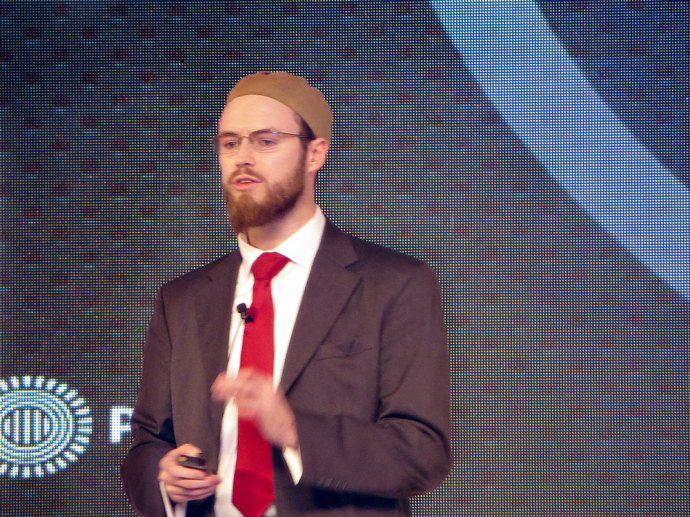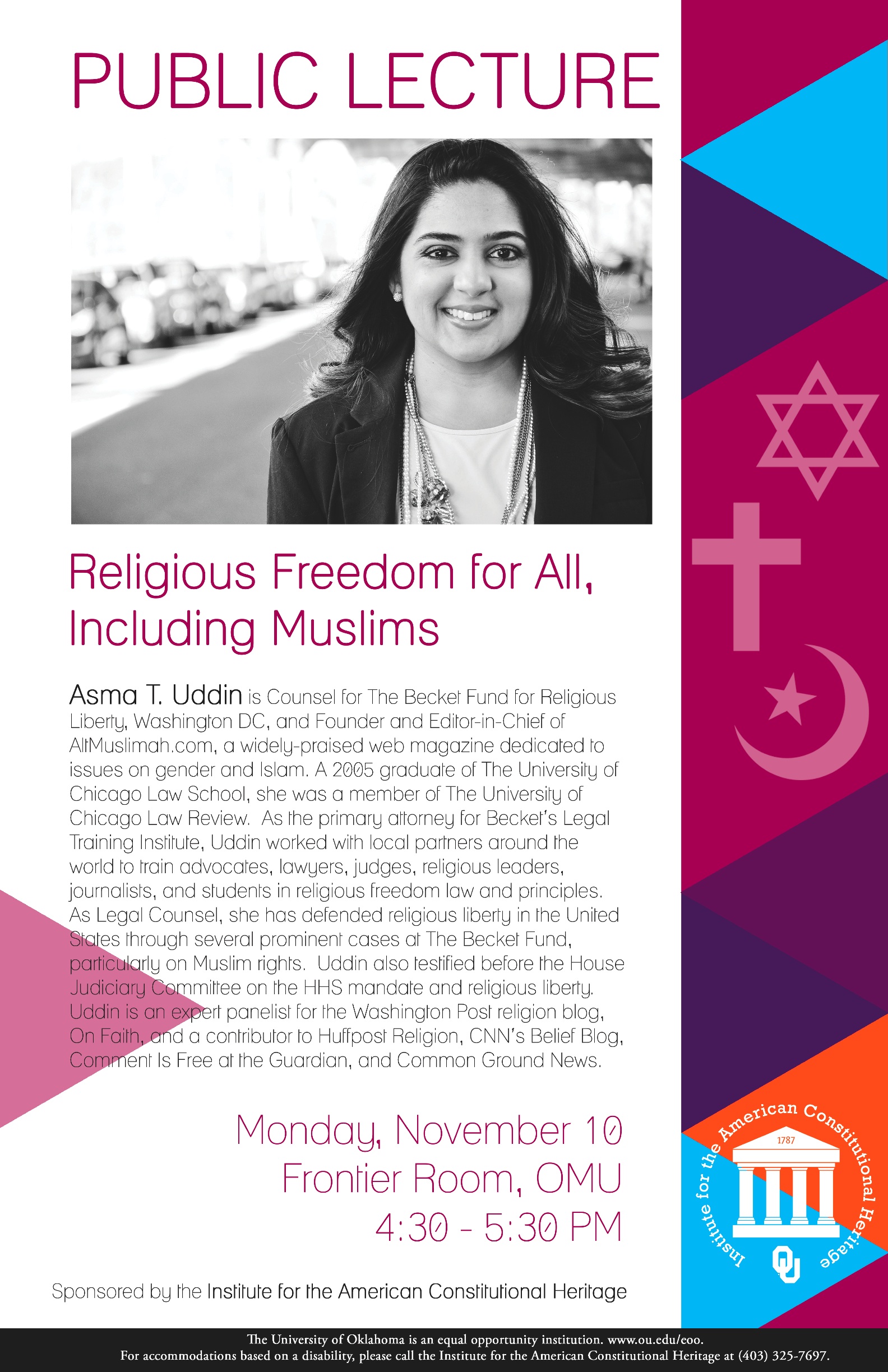Altmuslimah’s Asma Uddin spoke at the University of Delaware about being a female, Muslim lawyer. Read about a student’s perspective here, and from the moderator’s perspective below.
Delawareans, be proud of your open
minds about interfaith issues
MUQTEDAR KHAN • May 4, 2010
The last four weeks have been a feast for my mind
and my soul. I have enjoyed participating in a series
of dialogues on a plethora of issues, ranging from
the contribution of Muslim women to American
society to the stalemate in the Arab-Israeli peace
process.
While some states like Arizona are screaming to the
world that their minds are closing, Delaware
continues to nourish open minds. It may be a small
state, but it does have a big heart.
We began by inviting four accomplished female
lawyers to come and tell their stories to our
students. There is so much talk about women and
Islam, and most of it focuses on the negatives. What
is often ignored is that there are indeed millions of
Muslim women all over the world who are living
extremely accomplished lives. They have great
careers and great family life. They are professionals,
business owners, they win Nobel prizes for
struggles for human rights, they run countries and
they run homes.
These women — Rafia Zakaria, a national board
member of Amnesty International; Asma Uddin, an
advocate for international religious freedoms; Hina
Haq, a prosecutor of domestic violence crimes; and
Nina Qureshi, an immigration lawyer — destroyed
stereotypes of Muslim women and started a process
of rethinking the status of women in Islam on the
university campus.
I can see it in the simulations, in the questions
posed to visiting scholars and in the questions that
are driving research papers. They shared the
passion they felt for the rule of law and the
principles of justice and rights. They discussed
their personal journeys as jurists reflecting on their
Islamic faith and the Muslim mandate to enjoin good
and forbid evil. They also talked about the evolution
of their Islamic identity as they engaged with
American norms and cultural ethos.
About three weeks ago, Robert Crane, a former
adviser to Presidents Richard Nixon and Ronald
Reagan, initiated a fascinating conversation. He
talked about the natural law basis of the ideas of
justice as enshrined in the U.S. Constitution and in
the Islamic Shariah. His memories about U.S.
engagement with Islamic movements in the 1980s
were intriguing. It is fascinating to note that the U.S.
was more open to dialogue with Islamists under
Reagan than it is now under Barack Obama. Clearly
the catastrophic attacks on the U.S. on Sept. 11,
2001, resulted in a marked shift in U.S. posture.
I have already shared the details of the engaging
visit of Sen. Ted Kaufman, D-Del., in my last
column. Sen. Kaufman argued that President
Obama’s foreign policy was clearly moving away
from that of President George W. Bush’s, but in
doing so it looked more and more like the foreign
policy of President George H. Bush. Interesting.
Yesterday’s Republican is today’s Democrat?
As readers of this column know, I have a soft spot
for the wonderful folks at the Westminster
Presbyterian Church. Once again they hosted me
(last Sunday) to tackle a very interesting theme: What
the Quran says about Christians. As usual, the event
was thought-provoking, the audience intelligent
and curious and the atmosphere deeply spiritual.
The church, in collaboration with the Muslim
Professionals of Delaware, is starting a monthly
interfaith group that will explore spiritual and
religious themes of common interest, and this event
was the stage-setter.
Next stop, Wilmington Friends School (WFS). I had
the opportunity to participate on a panel and
engage with 70 of their young scholars. The theme
was about the prospects for peace in the Middle
East. In keeping with the Quaker tradition of WFS,
the panel touched on some of the most difficult
issues without reticence but concluded on a note of
hope for the future.
The panel was diverse. It included Dr. Sandy Rae, a
psychologist who has worked in Palestine; Ron and
Rosita Abel, a fascinating couple — Jewish and
Palestinian — who work tirelessly for peace in the
Middle East; Ben Schiff, a young Israeli who served
in Israeli Defense Forces and is now visiting
Delaware; and the distinguished John Elzufon — my
friend and critic — and a prominent member of the
Delaware Jewish community.
While there were many disagreements about the
Middle East, we did all agree that the students of
WFS are very smart and that the U.S. must play a
more meaningful role in the peace process.
We live in an age of cultural, religious and political
polarization. The differences are sharp and the
rhetoric vitriolic. Partisanship holds sway. People
are quick to judge, reluctant to engage and slow to
forgive. Delaware is fortunate that we have so many
in our midst who are eager to reach out and listen.
Let’s keep it that way.
(Source: Delaware Online)
Dr. Muqtedar Khan is an associate professor at the University of Delaware and a fellow of the Institute for Social Policy and Understanding.



